Egypt's Sisi Hosts Israel's Bennett, UAE's Sheikh Mohammed
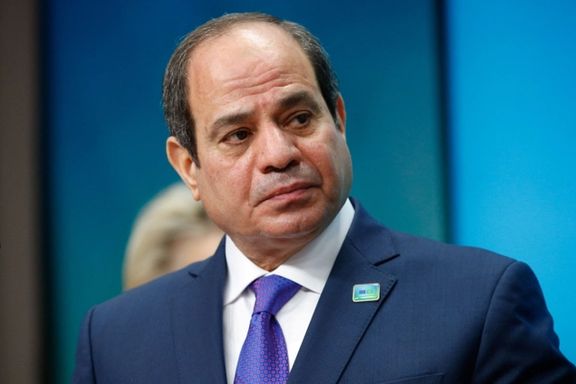
Egypt hosted Israel's prime minister and the de facto leader of the United Arab Emirates Monday, sources said, as talks to revive the Iran deal remain in limbo.

Egypt hosted Israel's prime minister and the de facto leader of the United Arab Emirates Monday, sources said, as talks to revive the Iran deal remain in limbo.
Although there was no official announcement about the presence of Israel’s Naftali Bennett, two Egyptian security sources told Reuters that President Abdel Fattah al-Sisi his guests held discussions that covered the consequences of the war in Ukraine.
Persian Gulf states were excluded from talks to revive the 2015 nuclear deal with Iran that they have criticized for not addressing Iran's missiles program and regional proxies, including in Yemen.
Egypt's presidency said Sisi and the UAE's Sheikh Mohammed bin Zayed al-Nahyan held expanded bilateral talks on issues including economic investment, in the Red Sea Resort of Sharm el-Sheikh.
Sisi stressed Egypt's commitment to security in the Persian Gulf and "rejection of any practices that seek to destabilize it," the presidency said in a statement.
The UAE along with Saudi Arabia has resisted Western calls to hike oil output and contain a jump in crude prices caused by the conflict in Ukraine.
Egypt faces new economic pressures due to the war that saw it devalue its currency by 14% on Monday. It has called on financial support from wealthy Gulf states in the past.
Bennett visited Egypt last September, the first official trip by an Israeli head of government to the country in a decade.
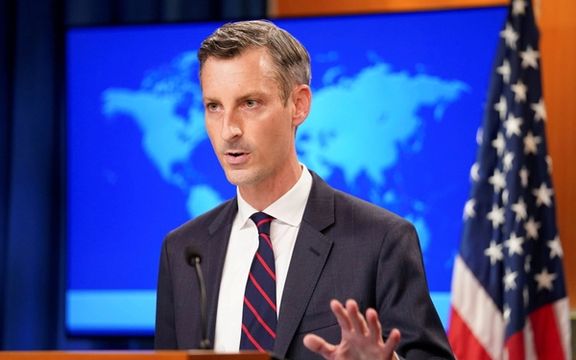
US State Department said Monday that a nuclear deal with Iran “is neither imminent nor is it certain”, as talks in Vienna have paused for more than ten days.
The department’s spokesman Ned Price in his daily briefing said, “there has been significant progress in recent weeks, but I want to be clear that an agreement is neither imminent nor is it certain.”
The statement came as National Security Advisor Jake Sullivan slammed Iran’s support for Yemen’s Houthis as the rebel force launched multiple attacks against Saudi Arabia over the weekend. Sullivan repeated US accusations that Tehran is supplying missiles and drones to the Houthis, violating a United Nations arms embargo.
It is clear that one major remaining issue in the Vienna talks is Iran’s demand to remove sanctions imposed by the Trump administration on the Revolutionary Guard, IRGC. Multiple reports have indicated the Biden Administration is weighing its options regarding the Iranian demand.
Opposition both in the United States and abroad has been strong against taking such a step. Both Republican and Democratic lawmakers have expressed concern over the possibility of removing the IRGC from the US Foreign Terrorist Organization (FTO) list.
Israel’s prime minister and foreign minister forcefully and publicly opposed the notion in a statement on March 18, while the United Arab Emirates is reportedly “shocked” at the notion.
The Jerusalem Post reported that some in Abu Dhabi “are in great shock,” and their views on the issue are similar to Israel’s.
Media reports have said that the Biden administration has an option to remove the FTO designation in exchange for a promise by Tehran not to use the IRGC and its proxy forces in the region to harm US interests. Both Israel and its Arab friends in the region view a possible reliance on Tehran’s promises as a naïve and dangerous notion.
It is not clear when and if the Vienna talks will resume. Price on Monday said he can offer no information and urged Tehran to free “innocent Americans and others” held in Iran, which is Washington’s “top priority.”
Both Saudi Arabia and the UAE have had difficulties in their dealings with Washington, which last year took steps distancing itself from Persian Gulf allies. The Biden team removed the Houthis from its terror designation and restricted weapons sales to the Saudi coalition fighting in Yemen.
Saudi Arabia and the UAE which had close relations with the Trump administration have not responded to Biden’s calls for more oil supplies in the wake of Russia’s invasion of Ukraine and have taken a neutral posture toward Moscow.
Price tired to minimize disagreements with the UAE when asked about the visit of Syrian president Bashar al Assad to the Emirates this week, which the administration has criticized.
Our Emirati partners, they are a partner of ours, and they will continue to be and are an important partner of the United States. We share a number of interests, including the security interests, our shared interest in bringing to a close this conflict in Yemen. We have a shared interest in terms of regional stability, in terms of pushing back on Iran, in terms of helping our Emirati partners defend themselves against the attacks that have emanated from Yemen, from the Houthis. And of course, we are committed to all of that,” the spokesman said.
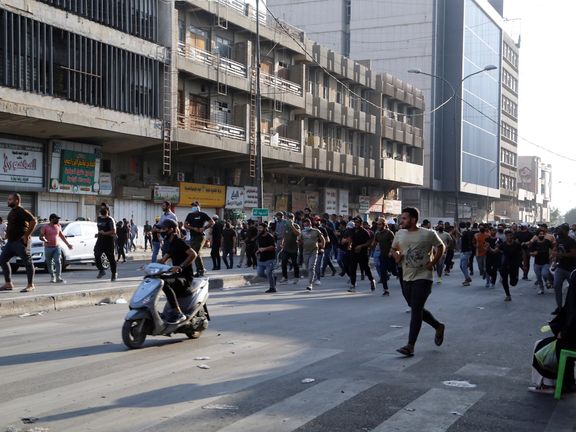
Turkish state-run news agency ran an opinion piece Monday arguing Iran is the biggest single threat to Iraq’s stability.
The piece described the state-linked Popular Mobilization Forces – which Iran helped set up in fighting against the Islamic State group – as a means just to strengthen Iran's military presence as part of a regional strategy also pursued in Lebanon, Syria, and Yemen.
The writer portrays Iran as directly interfering in internal Iraqi affairs for at least 20 years, not just through its relationship with militias but with missile attacks and influencing elections. Late in 2021, Iraq's Supreme Court rejected appeals by pro-Iran Shi'ite parties against results of a parliamentary poll in which they performed poorly.
Iraq has been a battlefield for influence between the United States and Iran since the 2003 US-led invasion, which toppled Saddam Hussein and created a path to power for a Shi'ite majority whose parties had been suppressed and had been based in Damascus or Tehran.
Turkey has long extended its influence in Iraq, especially in the Kurdish-held north and among allied Turkmen groups.
The Turkish news agency article portrayed visits to Iraq by Esmail Ghaani, leader of Iran’s extraterritorial Quds Force, as an example of Iran obstructing stability. It also mentioned the 2020 attack by rioters on the Baghdad office of the Kurdistan Democratic Party, the Kurdish party closest to Ankara.
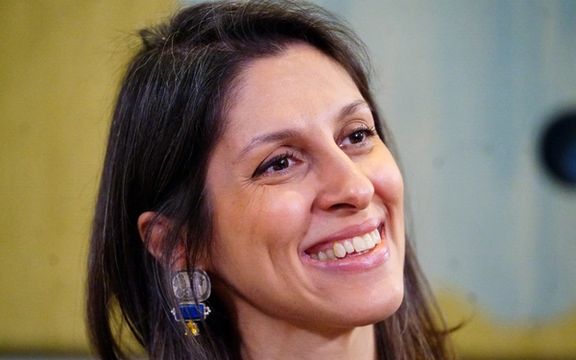
British Iranian Nazanin Zaghari-Ratcliffe says she saw five foreign secretaries change during six years of her detention in Iran without a deal to free her.
"That is unprecedented given the politics of the UK…What's happened now should have happened six years ago. I shouldn't have been in prison for six years," Zaghari-Ratcliffe said at a press conference in Westminster Monday, days after she regained her freedom.
Zaghari-Ratcliffe's MP Tulip Siddiq said she would be calling for a review by the Foreign Affairs Select Committee of the British parliament to investigate the delay in her release.
She was freed after the UK paid a four-decade-old £400m ($522 million) debt to Iran. Iranian state media in 2021 cited unidentified Iranian officials as saying that the British-Iranian aid worker would be freed once the debt had been paid. Iran's foreign minister Hossein Amir-Abdollahian last week claimed that the payment by Britain had nothing to do with the release of the Zaghari-Ratcliffe and Anoosheh Ashoori.
At the press conference she pointed out that "justice in Iran does not have any meaning" and apparently referring to Iran's negotiations with world powers over its nuclear issue, said that the freedom of dual nationals "should not be linked to international agreements."

Zaghari-Ratcliffe disclosed that soon after her arrest Iranian interrogators told her that she will be freed when the UK pays the money.
Following her release, Iran’s hardliner media continued to accuse her and other British- Iranian detainees of spying and highlighted that Tehran got paid to free them.
Recalling her experience in detention, she said it would always "haunt" her but declined to speak about her ordeal in solitary confinement, presumably due to the presence of her seven-year-old daughter Gabriella at the press conference.
The British Foreign Secretary Liz Truss claimed credit for negotiating a furlough for British-American-Iranian wildlife conservationist Morad Tahbaz, along with the release of Nazanin Zaghari-Ratcliffe and Anoosheh Ashoori.
"The world should come together to help other prisoners," she said, referring to other dual nationals still held in Iran including Tahbaz.
Morad Tahbaz, 66, was released from prison on furlough on the same day Zaghari-Ratcliffe and Ashoori left Iran to return to Britain.
Tahbaz's daughter, Roxanne, said Monday he had been taken back to prison two days after being released on furlough. She was in the press conference by the invitation of Zaghari-Ratcliffe and read a statement to bring attention to her father's circumstances and the family's plight. The family say he has gone on hunger strike.
“It’s been over four years now since my father was detained and my mother was put on a travel ban in Iran,” his daughter told the press conference Monday. "I’m here today to ask the question of why my father is the only UK-born national who has been abandoned and left behind there.”
Tahbaz's family fear he may fall through the diplomatic cracks with his triple nationality.
"He did not think that the UK government would abandon him. He was born in the UK," a family member who asked not to be identified told the BBC.
Tahbaz was arrested during a crackdown on environmental activists in January 2018.
There were contradictory statements on Monday whether he was taken to a “residential place” or was still in prison.
There are two more British-Iranian citizens still behind bars in Iran, labor rights activist Mehran Raoof and lawyer Shahram Shirkhani both of whom are serving ten years in jail for alleged spying.
Iran is still holding several other western dual nationals including American-Iranians Siyamak Namazi and his elderly father Bagher, American-Iranian businessman Emad Sharghi, and German-Iranian rights activist Nahid Taghavi.
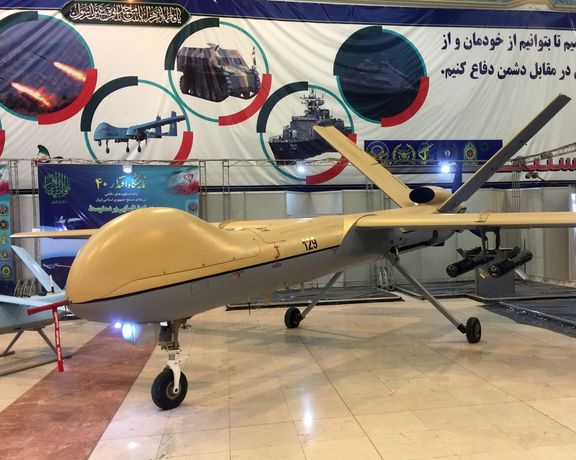
The Jerusalem Post cited Monday the defense establishment reporting that US jets on February 14 shot down near Iraq’s Erbil two Iranian drones flying towards Israel.
The actions occurred around the time of an Israeli drone attack on an Iranian airbase in Kermanshah province that damaged Iran’s drone fleet.
The Israeli attack was followed by an Iranian ballistic missile strike on Erbil March 13, targeting what Tehran said was an Israeli intelligence base that allegedly organized the drone strike, although an Israeli air strike in Syria that killed two Iranian soldiers may also have prompted Iran’s response.
In February the Israeli air-force said its F-35 jets had downed two Iranian Shahed-197 drones ferrying weapons for Palestinians in Gaza. The Israeli military claimed the drones, one approaching from the south and the other from the east, were brought down without entering Israeli airspace “in coordination with [un-named] neighboring countries.”
Increasing tension between Israel and Iran comes as Tehran’s talks with world powers over reviving the 2015 nuclear deal have been struggling to conclude. Israel opposed the 2015 agreement, the JCPOA (Joint Comprehensive Plan of Action), which limited Iran’s nuclear activities and removed international sanctions. For over a decade Israel has carried out attacks on the Iranian atomic program including killing scientist and drone strikes.
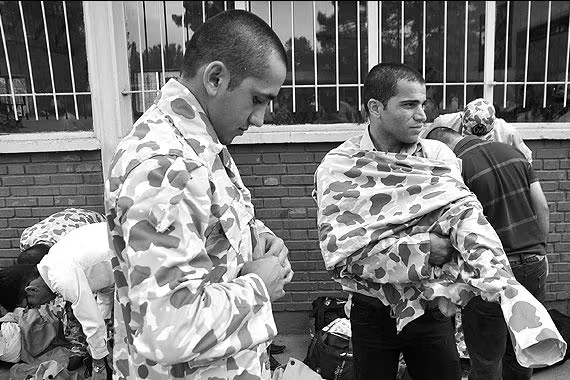
A young military conscript in southern Iran has killed four of his fellow servicemen and took another hostage, local media reported on Monday.
Mehr News Agency quoted an informed source as saying that the conscripted soldier began the killing spree in one of the barracks of the southern province of Bushehr after his request for leave was denied. Mehr News later changed its initial report, deleting the reference to the motive of the soldier, saying it is under investigation.
According to the source, the hostage was released in the port city of Deylam and the perpetrator arrested.
According to Iran’s constitution, all men over 18 years old must serve in the military for about two years otherwise they cannot apply for a passport to leave the country. Most of them are drafted into the traditional Army, but some with the right connections serve with the Revolutionary Guard where conditions are much better.
In January, Iran announced it would reinstitute a buy-out scheme for the country’s compulsory military service, but canceled plans just one day after it was reported following widespread criticism by citizens and officials.
The new fees announced for the buy-out scheme that ranged between about $10,000 and $20,000 had shocked people in Iran whose average salaries are less than $200 a month. Many social media users had slammed the decision that would only be possible for the rich to afford.